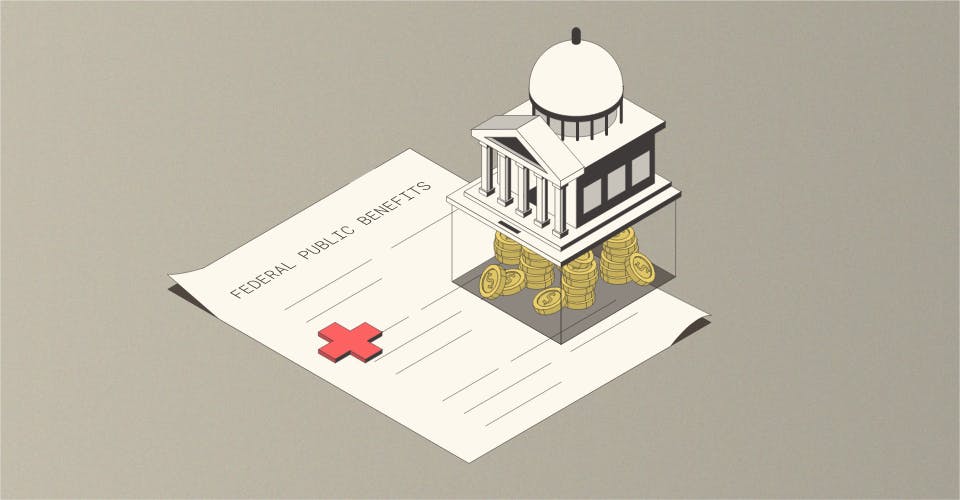Immigrants arriving in the United States come from all different walks of life. Some are experienced professionals on specialty visas and earning high salaries in different U.S. cities living comfortably. However, other immigrants are not as fortunate, and may need assistance in some form when they arrive in the United States, whether they are a green card holder or temporary resident.
The process of applying for assistance revolves around federal public benefits. Federal public benefits can be defined as a variety of safety-net services that are paid for by federal funds.[1] However, because of the way welfare works in the United States, and because of the way states have authority over public benefits to some degree, it can be confusing for immigrants and legal permanent residents to know which federal public benefits they are eligible for. In this blog, we will take a closer look at the HHS—Department of Health and Human Services, and which benefits are available to immigrants throughout the U.S.
Supplemental Nutrition Assistance Program (SNAP)
Immigrants who are in need of food stamps, or nutrition assistance for their children or dependents might be wondering about SNAP—a program that has been around in the United States and implemented by the USDA since the Great Depression. As mentioned above, there are eligibility requirements for SNAP if you are a non-citizen. The following are eligible with no waiting period:
1. LPRs who are receiving government payments for disability or blindness.
2. LPRs who have been credited with 40 hours of work, or have been in the U.S. as a green card holder (and in good standing) for five consecutive years.
3. Qualified alien (dependent) children under 18 years old.
4. LPRs with a military connection—such as the spouse or child of a military veteran.
Healthcare
Medicaid in the United States is the nations public health insurance program for people with low income. The Medicaid program covers about 1 in 5 Americans, including many with complex and costly needs for care.[2] The vast majority of Medicaid enrollees lack access to other affordable health insurance. Immigrants and legal permanent residents are eligible for Medicaid too, but with some provisions.
Most states in the U.S. provide Medicaid for immigrant populations, but there’s a catch. Ordinary green card holders need to wait five years before being able to enroll in Medicaid or CHIP—Children’s Health Insurance Program. However, some special green card holders that derived their status after being a refugee, asylee, victim of human trafficking, etc. don’t have to worry about the five year ban.
There are also some states in the U.S. that don’t abide by the five year ban for ordinary LPRs and provide qualified health coverage. These states include California, Washington, and Minnesota.[3] In addition, other states provide Medicaid for children as part of their own state plan with no five year waiting period. These states include Connecticut, Hawaii, Illinois, Maine, Massachusetts, Nebraska, New Jersey, New Mexico, New York, Oregon, Rhode Island, and Wisconsin.[4]














